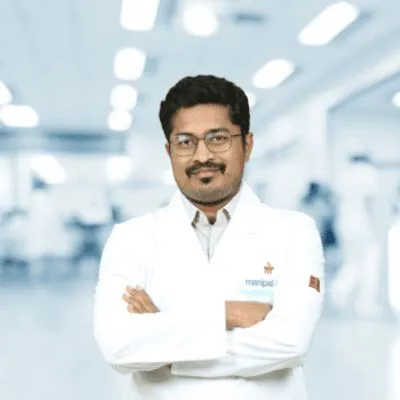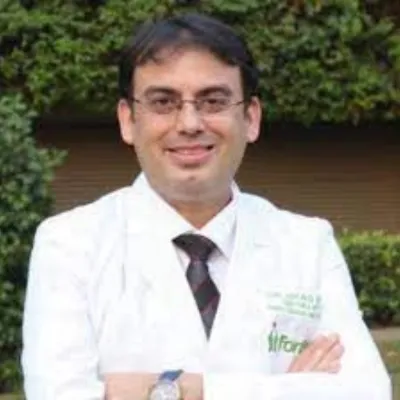By Speciality
By Procedure
By Diseases
Best Doctors
- Dr. Rahul Bhargava
- Dr. Prof. Mohamed Rela
- Dr. S N Mehta
- Dr. Abhijeet Chaudhary
- Dr. Amit Kumar Singhal
- Dr. Charles Panackel
- Dr. Sherley Mathen
- Dr. Lalit Sehgal
- Dr. Vimalraj Velayutham
- Dr. Neerav Goyal
- Dr. Kishore G S B
- Dr. Piyush Kumar Sinha
- Dr. Arvinder Singh Soin
- Dr. Samit Chaturvedi
- Dr. Rajanikanth Patcha V
- Dr. Mohammed Abdun Nayeem
- Dr. Shailendra Kumar Goel
- Dr. Anup Gulati
- Dr. Devendra K. Sharma
- Dr. Pradeep Bansal
- Dr. Sandeep Guleria
- Dr. Vikas Dua
- Dr. Sanjay Gogoi
- Dr. Vikas Agarwal
- Dr. Shyam Bihari Bansal
- Dr. Manish Jain
- Dr. Pradeep Krishna
- Dr. Rajeev Vijayakumar
- Dr. Govind Eriat
- Dr. Suresh Raghavaiah
- Dr. Amar Nath Ghosh
- Dr. Neelam Mohan
- Dr. Neeraj Saraf
- Dr. Prashant Vilas Bhangui
- Dr. Ajitabh Srivastava
- Dr. Vikram Kalra
- Dr. Niranjan Kulkarni
- Dr. Sharad Sheth
- Dr. Gaurav Sood
- Dr. Pankaj Lohia
- Dr. Rahul Grover
- Dr. Kulwant Singh
- Dr. Deepak Kumar Panigrahi
- Dr. Vikram Kumar
- Dr. Gouri Kumar Prusty
- Dr. Pradip Chakrabarti
- Dr. Tanmoy Kumar Mandal
- Dr. Anil Mandhani
- Dr. Salil Jain
- Dr. Gagan Deep Chabbra
- Dr. Manav Suryavanshi
- Dr. Jaya Agarwal
- Dr. Dinesh Balakrishnan
- Dr. Christi Titus Varghese
- Dr. Abhishek Agrawal
- Dr. Shyam Sunder Nowal
- Dr. G K Prakash
- Dr. Mohan K
- Prof. (Dr.) Subhash Gupta
- Dr. Neeru Praveer Aggarwal
- Dr. Naveen M N
- Dr. Rajiv E N
- Dr. Suresh Raghavaiah
- Dr. Nikhil Shellagi
- Dr. Sanjeev Rohatgi
- Dr. Bhaskar BV
- Dr. Harsha R
- Dr. Anant Kumar
- Dr. Esha Kaul
- Dr. Manoj K. Singhal
- Dr. Shaleen Aggarwal
- Dr. Pallavi Patri
- Dr. Krishna Kumar. K
- Dr. Lohit Shetty Raju
- Dr. Manohar Bhadrappa
- Dr. Prasanna Bhat KS
- Dr. Surya Kant Choubey
- Dr. Deepak Kumar Chitralli
- Aravind Kidambi Seshadri
- Dr. Nagarajan P
- Dr. Ajay S. Shetty
- Dr. V Mohankumar
- Dr. Nagendra Kumar V R
- Prof. Dr. Nagamalesh U M
- Dr. Vikram Sharma
- Dr. Deepak Goyal
- Dr. Santanu Sen
- Dr. Vimal Dassi
- Dr. Amit Mahendra Gulhane
- Dr. Sagar Shankar Patil
- Dr. Nishant Deshpande
- Dr. Vishal Vasant Ramteke
- Dr. Sunil Prakash
- Dr. Vishal Saxena
- Dr. Chandrasekaran Venkataraman
- Dr. Benhur Joel Shadrach
- Dr. Dinesh Jothimani
- Dr. Ramkiran Reddy Cherukuru
- Dr. Gomathy Narasimhan
- Dr. Ashwin Rammohan
- Dr. Vasantha Kumar
- Dr. Rajesh Rajalingam
- Dr. Kumar Palaniappan
- Dr. Jasper Sandeep Rajasekar
- Dr. R. Muthukumarassamy
- Dr. Prithiviraj Nabi
- Dr. Radhika Venugopal
- Dr. Arul Kumar S
- Dr. Madhumita Udayasankar
- Dr. D. Senthil Kumar
- Dr. Prasanna Kumar Mishra
- Dr. Sudarshan Kanti Baishya
- Dr. Amit Goel
- Dr. Upwan Kumar Chauhan
- Dr. Rajesh Dey
- Dr. Manisha Dassi
- Dr. Pankaj Gaur
- Dr. Yasir Sultan Rizvi
- Dr. Sumit Gahlawat
- Prof (Dr.) Debabrata Mukherjee
- Dr. M Ram Prabahar
- Dr. Jayanivash J
- Dr. R Shanmugasundaram
- Dr. Dharma Choudhary
- Dr. Dinesh Khullar
- Dr. Vivek Vij
- Dr. Piyush Varshney
- Dr. Mukul Rastogi
- Dr. Abhideep Chaudhary
- Dr. Saurabh Pokhariyal
- Dr. V R Rathish Rajendran
- Dr. Giriraj Bora
- Dr. Joy Varghese
- Dr. Govini Balasubramani
- Dr. Ravi Sankar Ganji
- Dr. Sridhar A.V.S.S.N.
- Dr. Suman Lata Nayak
- Dr. Geet Bajpai
- Dr. Mrigank Shekhar Jha
Book Your FREE Consultation
 Best Transplant Surgery Doctors in Rainbow Children's Hospital & BirthRight, Bannerghatta, Bengaluru
Best Transplant Surgery Doctors in Rainbow Children's Hospital & BirthRight, Bannerghatta, Bengaluru
1 records found
Dr. Nagendra Kumar V R 
Hepatologist, HPB and Liver Transplant Surgeon, Pediatric Gastroenterologist
Consultant of Manipal Hospital, Hebbal, Bangalore
MBBS, MD, PDCC, DM
 Manipal Hospital, Hebbal, Bangalore
Manipal Hospital, Hebbal, Bangalore
 18+ Years of Experience
18+ Years of Experience
 Language:
English
Gujarati
Hindi
Kannada
Telugu
Language:
English
Gujarati
Hindi
Kannada
Telugu
About
Dr. Nagendra Kumar V R is an eminent pediatric gastroenterologist with 18 years of expertise. He specializes in treating and managing conditions related to the gastrointestinal tract, hepatobiliary-pancreatic system, and other related systems. He also has experience managing both acute and long-term nutritional issues.
Looking for the Best Transplant Surgery Doctors in Rainbow Children's Hospital & BirthRight, Bannerghatta, Bengaluru?
Get a Treatment Plan Within 1 Hour
Author
Doctor of Pharmacy
Dr. Deepanshu Siwach is a skilled clinical pharmacist with a Doctor of Pharmacy degree.?He has 4+?years of experience and has worked with thousands of patients. He has been associated with some of the top hospitals, such as Artemis Gurgaon.
View ProfileDr. Deepanshu Siwach is a skilled clinical pharmacist with a Doctor of Pharmacy degree.?He has 4+?years of experience and has worked with thousands of patients. He has been associated with some of the top hospitals, such as Artemis Gurgaon....
Reviewer
Director
Bone Marrow Transplant Surgeon, Hemato-Oncologist, Pediatric Hematologist, Pediatric Oncologist
Dr. Vikas Dua is a Pediatric Hematologist and BMT specialist with 22 years of experience. He specializes in Pediatric Hematology, Hemato-Oncology, and Transplants, having performed 1000+ transplants with his team....
Frequently Asked Questions
You can search our websites for the best transplant surgeon to find the top transplant doctor. You can also research online, read reviews, or consult your local doctor or healthcare provider.
When selecting a transplant doctor in India, check if the surgeon has the necessary qualifications, such as an MBBS, MS, MCh, or equivalent. Look for transplant doctors who have undergone advanced training or fellowships, especially in recognized national or international institutions.
Other essential factors to consider are:
- Specialization in the specific type of transplant you need
- Experience and success rates in performing the procedure
- Patient reviews and testimonials
- Affiliations with reputable hospitals
Some of the top transplant specialists in India include:
- Prof. (Dr.) Subhash Gupta (Liver Transplant)
- Dr. Sandeep Guleria (Kidney Transplant)
- Dr. Arvinder Singh Soin (Liver Transplant)
- Prof. Dr. Nagamalesh U M (Heart Transplant)
- Dr. Rahul Bhargava (Bone Marrow Transplant)
Look for a transplant surgeon with an MS or MCh in Transplant Surgery. Additional certifications, experience in specific transplant types, and membership in transplant societies are beneficial.
Transplant surgeons perform various organ transplant surgeries, including liver transplantation, kidney transplantation, heart transplantation, lung transplantation, and pancreas transplantation.
Yes, transplant surgeons may specialize in specific organ transplants, such as liver transplant surgery, kidney transplant surgery, or heart transplant surgery, offering specialized care for each organ.
The best transplant surgery doctors in India use advanced techniques such as minimally invasive organ retrieval, laparoscopic donor nephrectomy, ABO-incompatible transplant, desensitization protocols, and machine perfusion for organ preservation, ensuring optimal transplant outcomes.
Transplant surgeons assess candidacy through medical history review, physical examination, blood tests, imaging studies, and psychosocial evaluations to ensure patients are suitable candidates for transplantation.
During a consultation, the transplant surgeon will review medical history, assess transplant candidacy, discuss transplant options, explain the surgical process, and address any concerns about risks, recovery, and post-transplant care.
After a transplant, follow the post-transplant care plan provided by your surgeon diligently. It may include taking immunosuppressive medications, attending follow-up appointments, adopting a healthy lifestyle, and monitoring for signs of rejection or complications.




